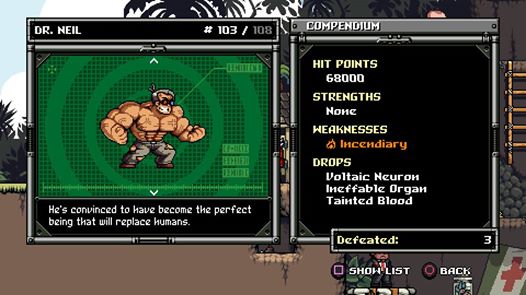
Die during a mission and you lose a good chunk of money run out of money and lives and it’s mission failed.

Players earn cash for successfully completing missions that can be used to purchase weapons and supplies from the home base. There’s a Resistance force, there’s a serum and bio-mods involved, you’ll figure it out Missions center around collecting or destroying enough things, blowing up just one big thing, or reaching a certain location within a time limit, all in the effort of freeing the island of Mandragora from the terrorist cabal CLAW and saving the influential scientist they’ve taken hostage. The updated MERCENARY KINGS: RELOADED EDITION dropped last week, adding two new playable characters for four-player co-op, as well as a crateload of new customizable weapons for your characters to use. KINGS originally released in 2014 with two main characters, King and Empress, a menagerie of bad guys, and way too many guns to shoot them with. MERCENARY KINGS is, appropriately enough, a tribute to games like METAL SLUG and CONTRA, featuring a heavily-armed sprite hero or heroine rampaging through various missions in order to defeat evil forces. This becomes a VERY satisfying screen as the game progresses But when you’ve got more time to invest in a game, say, at home, it helps to add features that appeal to one’s sense of progression, which is exactly what Tribute Games has done with MERCENARY KINGS: RELOADED EDITION.

That’s pretty much the depth of game design you need for an arcade game there’s no need to add open worlds, skill trees, or side quests when completion merely hinges on the amount of quarters you can scrounge up for the continue screen. I also remember being thankful that METAL SLUG had such a relatively simple concept: shoot the dudes, blow stuff up, and most importantly of all, keep running right.


One of the few, foggy memories I have of my 25th birthday was when I drunkenly played METAL SLUG at a local barcade, the logical conclusion of a generation borne by nostalgia and heavy drinking. This article previously appeared on Crossfader


 0 kommentar(er)
0 kommentar(er)
